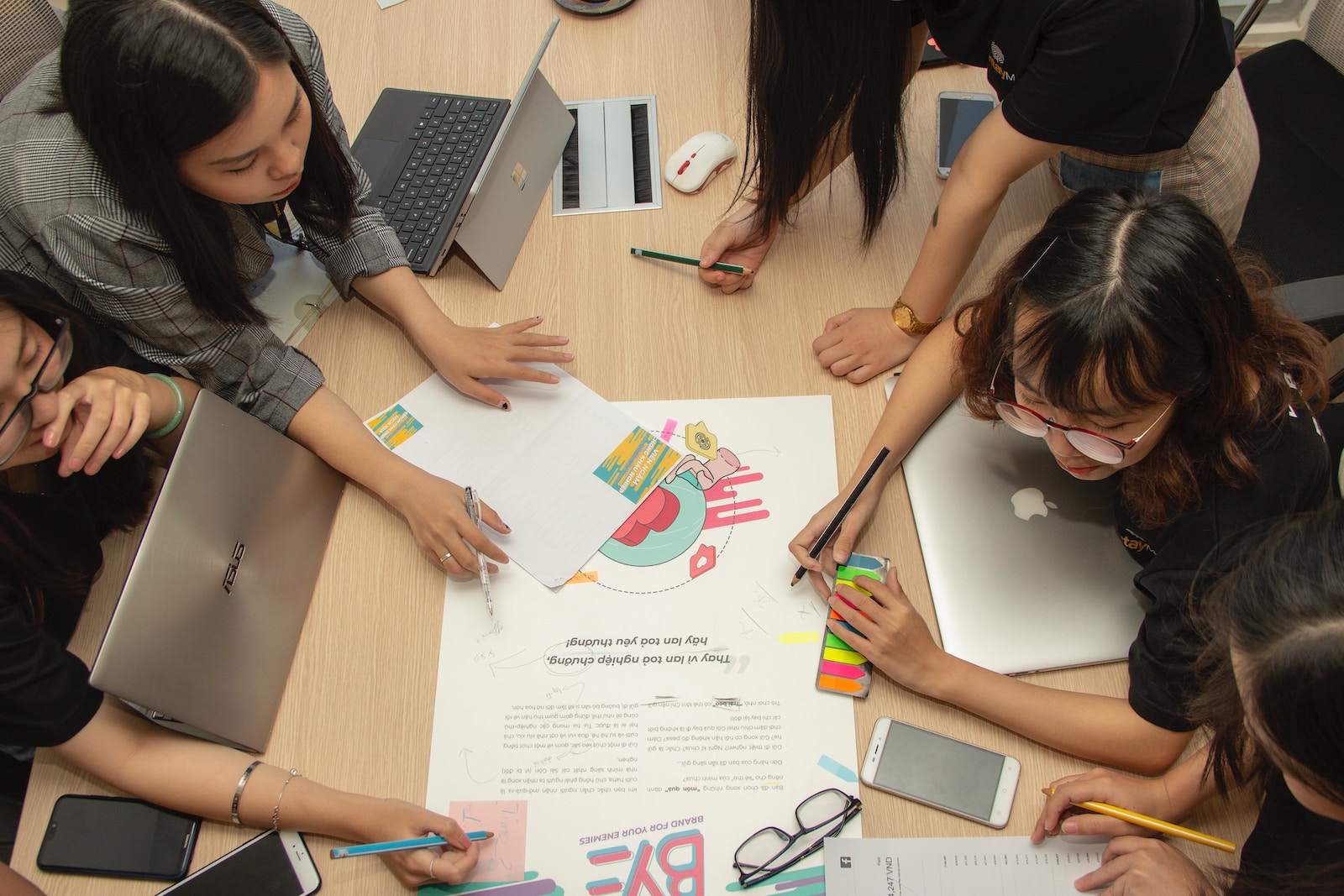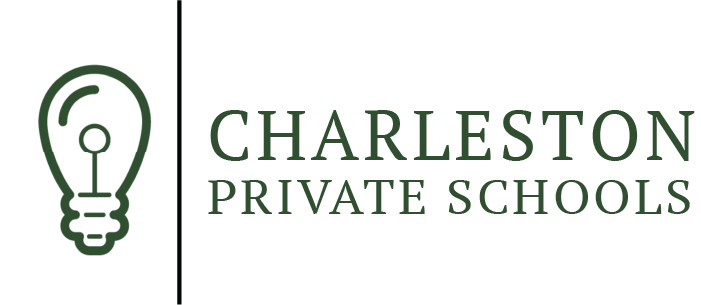This post was originally published on this site

Collaborative learning is an educational approach that emphasizes group work and cooperation among students to achieve a common goal. Private schools have long recognized the benefits of this approach, and many have incorporated collaborative learning into their curriculum. Collaborative learning can help students develop important social and emotional skills, as well as improve their academic performance.
One of the key benefits of collaborative learning is that it can help students develop important social and emotional skills. By working together in groups, students learn how to communicate effectively, resolve conflicts, and build trust with their peers. These skills are essential for success in both academic and professional settings, and can help students become more confident and resilient individuals.
In addition to social and emotional benefits, collaborative learning can also improve academic performance. Research has shown that students who work in groups are more engaged and motivated, and are more likely to retain information than those who work independently. Collaborative learning can also help students develop critical thinking and problem-solving skills, as they are encouraged to explore different perspectives and ideas. Overall, collaborative learning is a valuable tool for private schools looking to provide their students with a well-rounded education.
Understanding Collaborative Learning
Collaborative learning is an approach to education where students work together in small groups to achieve a common goal. This approach has been found to have many benefits for students in private schools. In collaborative learning, students are encouraged to take responsibility for their own learning and to work together to achieve a common goal. The teacher serves as a facilitator, providing guidance and support as needed.
Collaborative learning can take many different forms, including group discussions, problem-solving activities, and project-based learning. In each of these forms, students work together to share ideas, build knowledge, and develop critical thinking skills. This approach allows students to learn from one another and to develop a deeper understanding of the material.
Collaborative learning can benefit both students and teachers. For students, this approach can help to develop social skills, such as communication, teamwork, and leadership. It can also help to improve academic performance, as students are able to learn from one another and to build on each other’s strengths. For teachers, collaborative learning can help to create a more engaging and interactive classroom environment, where students are actively involved in their own learning.
Educators in private schools can use collaborative learning to create a more student-centered approach to education. This approach can help to foster a sense of community and collaboration among students, and can help to create a more supportive and inclusive learning environment. By using collaborative learning, educators can help students to develop the skills and knowledge they need to succeed academically and in their future careers.
The Role of Social and Communication Skills
Importance of Communication
Collaborative learning in private schools emphasizes the importance of communication skills in the learning process. In a socially constructed learning environment, effective communication is essential for successful collaboration and group work. Students are encouraged to express their ideas and opinions clearly, listen actively to their peers, and provide constructive feedback. This not only enhances their oral communication skills but also helps them develop critical thinking and problem-solving abilities.
Building Social Skills
Collaborative learning also helps students build social skills that are essential for success in their personal and professional lives. Working in groups helps students learn how to interact with others, resolve conflicts, and develop positive group dynamics. They learn how to appreciate and respect the diversity of ideas and perspectives that their peers bring to the table. These skills are particularly important in today’s globalized world, where effective communication and collaboration across cultures and borders are critical for success.
In conclusion, the role of social and communication skills in collaborative learning cannot be overstated. Private schools that emphasize these skills in their curriculum help their students develop into well-rounded individuals who are equipped to succeed in a variety of settings.
Benefits of Collaborative Learning
Collaborative learning is a teaching strategy that encourages students to work together in groups to achieve a common goal. It has been shown to have numerous benefits for students in private schools. In this section, we will explore the academic, social, and emotional benefits of collaborative learning.
Academic Benefits
Collaborative learning has been shown to improve academic performance in private schools. When students work together, they can share their knowledge and skills, which can lead to a deeper understanding of the material. Collaborative learning also helps students develop critical thinking and problem-solving skills, which are essential for success in school and beyond.
Social Benefits
Collaborative learning also has many social benefits. It helps students develop positive relationships with their peers, which can lead to increased confidence and self-esteem. Collaborative learning also helps students develop empathy and resilience, which are important life skills.
Emotional Benefits
Collaborative learning can also have emotional benefits for students in private schools. It can help students feel more engaged and motivated in their learning, which can lead to greater academic success. Collaborative learning also helps students develop a sense of belonging and community, which can lead to increased happiness and well-being.
In conclusion, collaborative learning has many benefits for students in private schools. It can improve academic performance, develop social skills, and have emotional benefits. Private schools should consider incorporating collaborative learning into their teaching strategies to help their students succeed.
Collaborative Learning and Leadership
Developing Leadership Skills
Collaborative learning provides a unique opportunity for students to develop leadership skills. By working together in groups, students learn to communicate effectively, delegate tasks, and take responsibility for their own learning. These skills are essential for success in any field, and are particularly important in private schools where students are often expected to take on leadership roles.
In order to develop leadership skills through collaborative learning, it is important for teachers to provide opportunities for students to take on different roles within their groups. This might include assigning a group leader, or rotating leadership positions throughout the project. By giving students the chance to practice leadership in a safe and supportive environment, they can build confidence and develop the skills they need to be successful in the future.
Role of Responsibility
Another key aspect of collaborative learning is the role of responsibility. When students work together in groups, they are responsible not only for their own learning, but also for the learning of their peers. This encourages a sense of ownership and accountability, which can be particularly valuable in private schools where students are often held to high standards.
To promote a sense of responsibility in collaborative learning, teachers can encourage students to set goals and track their progress throughout the project. This might involve creating a timeline or project plan, and checking in regularly to ensure that everyone is on track. By holding students accountable for their own learning and the learning of their peers, teachers can help to promote a sense of responsibility and ownership that will serve them well in the future.
Overall, collaborative learning provides a valuable opportunity for students to develop leadership skills and a sense of responsibility. By working together in groups, students can build confidence, communication skills, and a sense of ownership that will serve them well in their academic and professional lives.
The Role of Teachers in Collaborative Learning
Planning and Debriefing
Collaborative learning requires careful planning and debriefing by the teacher. Before starting a group activity, the teacher should clearly define the learning objectives and expectations for the activity. This includes setting clear guidelines for group roles, communication, and decision-making. The teacher should also ensure that students have the necessary skills and knowledge to participate effectively in the activity.
After the activity, the teacher should debrief with the students to reflect on the learning experience. This includes discussing what went well, what could have been improved, and how the students can apply what they learned in future activities. The teacher should also provide feedback to individual students and the group as a whole to help them improve their collaborative skills.
Facilitating Group Work
During group activities, the teacher should act as a facilitator rather than a lecturer. This means providing guidance and support to help students work together effectively, rather than simply providing answers or solutions. The teacher should encourage students to take ownership of their learning and to help each other learn.
The teacher should also monitor the group work to ensure that all students are participating and that the activity is on track. If necessary, the teacher should intervene to resolve conflicts or to redirect the group if they are not meeting the learning objectives.
In conclusion, teachers play a critical role in facilitating collaborative learning in private schools. By carefully planning and debriefing group activities, and by acting as a facilitator during the activity, teachers can help students develop important collaborative skills that will benefit them in future academic and professional endeavors.
Group Work and Task Management
Understanding Group Roles
Collaborative learning in private schools involves group work, where students work together to complete a task. To ensure that the group work is effective, it is important to understand the different roles that students can take on within a group. Some common group roles include:
- Leader: This person takes charge of the group and makes sure that everyone is on task.
- Recorder: This person takes notes and keeps track of the group’s progress.
- Timekeeper: This person makes sure that the group stays on schedule and completes the task on time.
- Encourager: This person provides positive feedback and support to the group.
By assigning specific roles to each group member, the group can work more efficiently and effectively.
Problem-Solving and Innovation
Group work also provides opportunities for problem-solving and innovation. When students work together to solve a problem, they can bring different perspectives and ideas to the table. This can lead to more creative and innovative solutions.
To facilitate problem-solving and innovation, teachers can provide open-ended tasks that require students to think critically and creatively. For example, students could be asked to design a new product or come up with a solution to a real-world problem.
In addition, teachers can encourage students to take risks and try new things. When students feel comfortable experimenting and taking risks, they are more likely to come up with innovative solutions.
Overall, group work and task management are important components of collaborative learning in private schools. By understanding group roles and providing opportunities for problem-solving and innovation, teachers can help students develop important skills that will serve them well in the future.
Enhancing Student Collaboration in Private Schools
Promoting Higher-Level Thinking
Collaborative learning in private schools provides a platform for students to engage in group projects, discussions, and debates. This approach promotes higher-level thinking skills, such as analysis, evaluation, and synthesis. Students can learn from each other, share their ideas, and develop a deeper understanding of the subject matter. Collaborative learning also encourages critical thinking, problem-solving, and decision-making skills, which are essential for success in the 21st century.
Building Self-Management Skills
Collaborative learning in private schools also helps students develop self-management skills, such as time management, goal setting, and task prioritization. Students learn to work together, set deadlines, and hold each other accountable. This approach fosters a sense of responsibility and ownership, which can translate into success in their future careers.
Private schools can enhance student collaboration by providing a conducive learning environment that supports group work. This may include flexible classroom arrangements, access to technology, and opportunities for peer feedback. Private schools can also integrate cooperative learning strategies into the school day, such as peer tutoring, think-pair-share, and jigsaw activities.
In conclusion, private schools can enhance the educational experience of their students by promoting collaborative learning. This approach fosters higher-level thinking skills, self-management skills, and a sense of responsibility. By providing opportunities for student collaboration, private schools can help students develop their talents and prepare them for success in the future.
Conclusion
In conclusion, collaborative learning has numerous benefits for private school students. Through working together, students can improve their critical thinking skills, learn from one another, and develop important social skills. Additionally, collaborative learning can lead to better academic outcomes, as students are able to share their knowledge and help one another understand difficult concepts.
Private schools should consider implementing collaborative learning strategies in their classrooms, as it can lead to a more engaging and effective learning environment. By encouraging students to work together and share ideas, teachers can help foster a sense of community and promote a love of learning.
Overall, collaborative learning is a powerful tool that can help students succeed both academically and socially. Private schools that prioritize this approach to learning are likely to see positive outcomes for their students.

